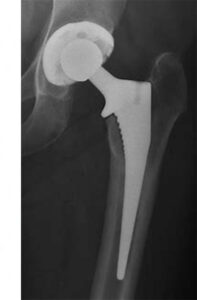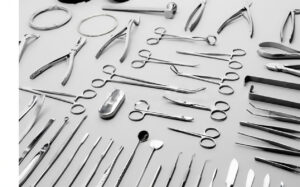Titanium Use In Medical Implants
Titanium is a widely used metal in the field of medical science, with a range of applications in the development of medical grade materials. It has many unique properties that make it an ideal material for medical implants and devices:
Biocompatibility
 One of the key properties of titanium that makes it suitable for use in medical implants is its biocompatibility. This means that the metal does not cause an adverse reaction when it comes into contact with living tissue, making it an excellent choice for implantable medical devices such as orthopedic implants, dental implants, and pacemaker casings. The human body also readily accepts titanium, which, together with its inherent ability to promote osseointegration (bone growth), makes it ideal for use in medical implants that need to remain in place for extended periods of time.
One of the key properties of titanium that makes it suitable for use in medical implants is its biocompatibility. This means that the metal does not cause an adverse reaction when it comes into contact with living tissue, making it an excellent choice for implantable medical devices such as orthopedic implants, dental implants, and pacemaker casings. The human body also readily accepts titanium, which, together with its inherent ability to promote osseointegration (bone growth), makes it ideal for use in medical implants that need to remain in place for extended periods of time.
Corrosion Resistance
Titanium has excellent corrosion resistance, which is critical in medical applications. When medical devices are implanted into the human body, they are exposed to bodily fluids that can be highly corrosive. Titanium’s resistance to corrosion ensures that the implant remains stable and does not degrade over time. This means that the implant can remain in the body for extended periods without causing any adverse effects.
Strength & Durability
Another advantage of titanium is its strength and durability. Medical implants made from titanium can withstand the wear and tear of daily use, which is essential for devices such as hip implants and dental implants. The metal also has excellent fatigue strength, which means that it is less likely to crack or break under the stresses of daily use.
Resistance to High Temperature
 Titanium is highly resistant to high temperatures, which is important for certain medical applications. For example, titanium is used in the manufacture of surgical instruments that need to be sterilized at high temperatures. The metal’s ability to withstand high temperatures without corroding or degrading makes it ideal for this purpose.
Titanium is highly resistant to high temperatures, which is important for certain medical applications. For example, titanium is used in the manufacture of surgical instruments that need to be sterilized at high temperatures. The metal’s ability to withstand high temperatures without corroding or degrading makes it ideal for this purpose.
Lightweight
Titanium is 45% lighter than steel and has a modulus of elasticity comparable to bone, which is a significant advantage in the development of medical implants. The weight of an implant can place a significant strain on the body, particularly if it is a weight-bearing implant such as a hip replacement. Titanium’s favorable weight to strength ratio means that it can be used to develop implants that are strong and durable, but still lightweight and suitable for the body to support.
The use of titanium in medical grade materials has revolutionized the field of medical science. The metal’s unique properties, including its biocompatibility, corrosion resistance, strength, durability, high-temperature resistance, and lightweight properties make it an ideal choice for use in medical implants and devices. The development of medical grade materials made from titanium has resulted in the creation of implants that are more durable, more effective, and safer than ever before, which has significantly improved the quality of life for patients around the world.
Supra Alloys supplies CP (Commercially Pure) Grades 1, 2, 3, and 4, and alloy grades 5 (Ti 6Al-4V) and 23 (Ti 6Al-4V ELI) in bar, rod, wire, sheet, plate, and tubing. (The CP grades are also available as slit coil, strip and cut-to-length sheet through NKS, another Banner Industries division). With the variety of products offered, Supra Alloys is able to meet the titanium needs of its medical customers, regardless of order size, application, or specification.

